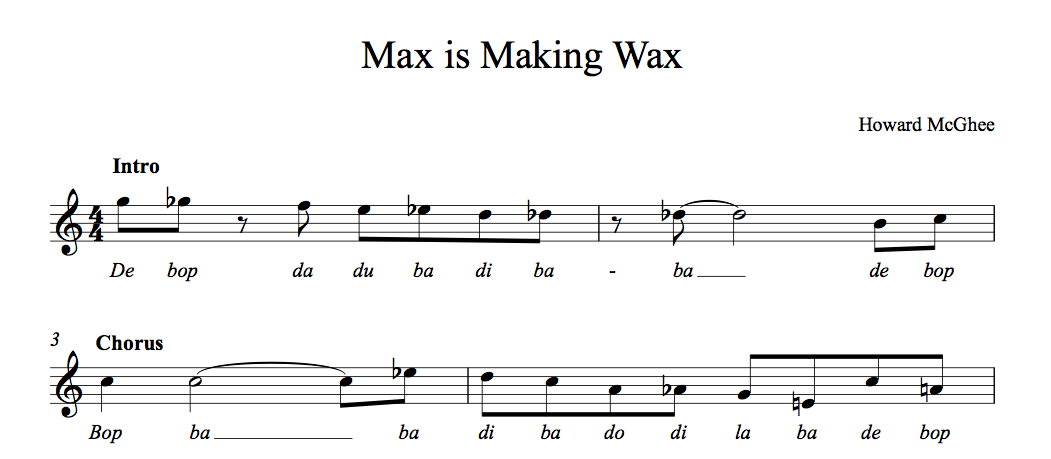More On the Origins of Bebop: "Max Is Making Wax" (or, "Bop ba ba di ba do di la be de bop")
From an interview with Dizzy Gillespie in Art Taylor's Notes and Tones:
Where did the term be-bop come from, and what are your feelings about it?
Duke Ellington once told me: "Dizzy, the biggest mistake you made was to let them name your music be-bop, because from the time they name something, it is dated."
They who?
Whoever named it; I don't remember who named it. I think it came from when we were on Fifty-second Street. We didn't have names for all our tunes, so I would say: "De bop da du ba di baba de bop," and they thought I was naming a tune or something like that.
Bop ba ba di ba do di la ba de bop.
Yeah. That was the introduction to "Max Is Making Wax." That's funny. I hummed the introduction, and you started the chorus. I guess it just happened from the way we used to hum things instead of saying the name of the tune. Say you play a number that goes be-bop. It just developed into that. I never thought of the term be-bop, and I'm sure Yard, Monk and Kenny [Clarke] never thought of the term be-bop.
* * * * *
I hadn't actually ever heard the introduction Dizzy refers to here until I found this jam session version with Miles from 1950:
The version I'm more familiar with is Bird and Howard McGhee's from the 1946 "Loverman" session, which features a rapid-fire improvised intro by pianist Jimmy Bunn, joined by Bob Kesterton on bass and Roy Porter on drums (anybody know more about these musicians?).

This tune has several names. You may find it called "Something For You" on an Oscar Pettiford big band recording from about 1944, as well as a version titled "Chance It" from a 1952 Miles session for Blue Note (often issued as Miles Davis Vol. 1) with Jackie Mac, J.J., Gil Coggins on piano, O. P. and Kenny Clarke.
ReplyDeleteThanks for the tips, Elijah. I had a feeling you knew this better than I did.
ReplyDelete